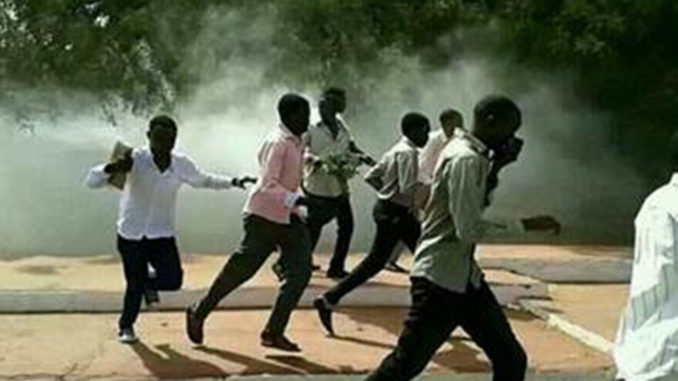

By Global Information Network
Instability is growing in the East African nations of Sudan and South Sudan while the U.S. pursues a military solution to a decades-long civil war in Somalia. Recent U.S. bombing raids are claiming 35 al-Shabab victims in the Hiraan region of central Somalia, the U.S. military’s Africa Command reports.
Such airstrikes in Somalia are typically carried out by armed drones. This is the 12th American drone strike on Somalia this month, according to Halgan Media, a Somali online news wire.
The Pentagon has increased the rate of strikes in Somalia after President Donald Trump loosened constraints on when the U.S. military can take action against alleged terrorists.
Drones may not yet be the weapon of choice in Sudan, but President Omar al-Bashir has pulled out all the stops to end public gatherings and protests in a series of emergency decrees issued this week. The Sudanese leader faces the most sustained anti-government street unrest of his 30-year rule.
This week, hundreds of demonstrators took to the streets in the capital, Khartoum, despite riot police firing tear gas and stun grenades at crowds.
“We are challenging the regime and we are not scared of the state of emergency,” protester Erij, who gave only her first name for security reasons, told Aljazeera news service.
“We have only one aim and that is to make the president step down.”
Riot police also fired tear gas into the compound of Ahfad University for Women after students there staged a sit-in.
Officials say 31 people have died in protest-related violence since then, while Human Rights Watch has put the death toll at 51.
Meanwhile, a crisis of almost unimaginable proportions devastates Africa’s newest independent nation of South Sudan despite a peace deal signed by the warring parties last year. Last week’s UN report into South Sudan offered an almost endless litany of human rights abuses, its 200-plus pages make for the most dismal reading, the UK Guardian reports.
There is a confirmed pattern of how combatants attack villages, plunder homes, take women as sexual slaves and then set homes alight – often with people in them,” said commission chair Yasmin Sooka in a statement about the report’s findings.
“Rapes, gang rapes, sexual mutilation, abductions and sexual slavery, as well as killings, have become commonplace in South Sudan… and a quarter of victims of sexual violence, used by all sides to sow terror, are children as young as seven. Children are also increasingly being recruited by the warring parties as soldiers.”
The U.N. report, optimistically, represents the first step in a process that may culminate with war crimes prosecutions. The commission announced it would continue to build on its findings.
This article originally appeared in the Charleston Chronicle.

Be the first to comment